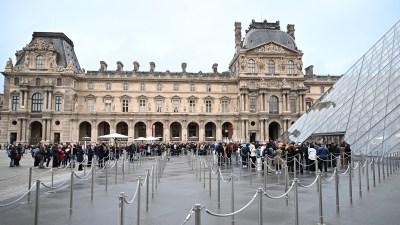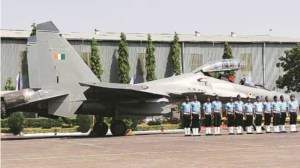When national security means safety of a few
It has become a national pastime to talk about terrorism. Not a day passes without the top political leaders emphasising the ‘‘gra...

It has become a national pastime to talk about terrorism. Not a day passes without the top political leaders emphasising the ‘‘grave threat’’ terrorism poses to India’s national security. And any means to ‘‘combat’’ this cross-border phenomenon is seemingly justified. Deputy Prime Minister L.K. Advani has gone on record to state that the country’s security situation is extremely grave. ‘‘It is not like an emergency but like a war,’’ he has stated. According to him, a reflection of this is the fact that all the national leaders are ‘‘under threat all the time’’. Taking its cue from this warning, the Delhi Police imposes virtual curfew in the city whenever these leaders’ motorcades whizz past.
The mercurial Chief Minister of Uttar Pradesh, Mayawati, has upgraded her security by several notches. In fact, the security level of most of these so-called national leaders is so obscene that it makes one wonder if they are products of a functioning democracy or a tin-pot dictatorship.
It is as if national security is assured so long as these ‘‘national leaders’’ feel safe and secure. In this skewed and arrogant view of national security, the safety, dignity and honour of the citizens who constitute the nation are of no consequence. They are all victims of the draconian laws and increasingly repressive methods adopted by the State under the pretext of national security.
Look at the starkly different manners in which America and India react to a terrorist threat. In the wake of the 9/11 attacks, the leading opinion in the US was: ‘‘We can achieve victory over the terrorists only with a vibrant recovery of our economies along with a destruction of their ability to ever commit such atrocities again.’’ In contrast, our leaders seem to think that we can stop cross-border terrorism by spending hundreds of crores of the taxpayers’ money on the protection of VIPs, and thousands of crores on the purchase of arms. Not a word about stimulating our stagnating economy or taking any effective steps to destroy the ‘‘ability’’ of the terrorists. Instead, insistent voices of Pakistan-bashing form a convenient facade for depriving human rights to the country’s citizens.
In 1994, the United Nations Human Development Programme’s Human Development Report had said: ‘‘For too long, the concept of (national) security has been shaped by the potential for conflict between states. For too long, security has been equated with threats to a country’s borders. For too long, nations have sought arms to protect their security. For most people today, a feeling of insecurity arises more from worries about daily life than from the dread of a cataclysmic event like war. Job security, income security, food security, health security, environmental security, security from crime — these are the concerns of human security all over the world.’’
In a country where over one-third the population is living in poverty, despair and deprivation, without a semblance of security and dignity, the emphasis on a police-centric ‘‘national security’’ is indeed perverse and blinkered. What is needed is a people-based system of ‘‘human security’’, which can be described as ‘‘a condition of existence in which basic material needs are met in harmony with human dignity, including meaningful participation in the life of the community’’. While material sufficiency lies at the core of human security, the concept also encompasses non-material dimensions to form a qualitative whole. Human security is oriented towards an active and substantive notion of democracy and is directly engaged with discussions of democracy at all levels, from the local to the global.
This view of human security harnesses four vital elements — material sufficiency, human dignity, democracy and participatory governance — that constitute the core of a civilised human society. One without the other is incomplete and unsustainable. While the Indian economy is expanding and getting globalised, the country’s political system is descending from national, regional and state levels to communal, caste and tribal divisions, causing tensions and conflicts that never existed before. The cause: a growing perception that national and state governance, as being practiced today, does not provide adequate human dignity and security. The shrinking of political space and growing intolerance, coupled with poor governance, pose severe threat to our national security. Hence, human security encompasses national security and has the capacity to address these burning issues and resolve them over a period of time.
(The writer is a former IAS officer)





- 01
- 02
- 03
- 04
- 05

























